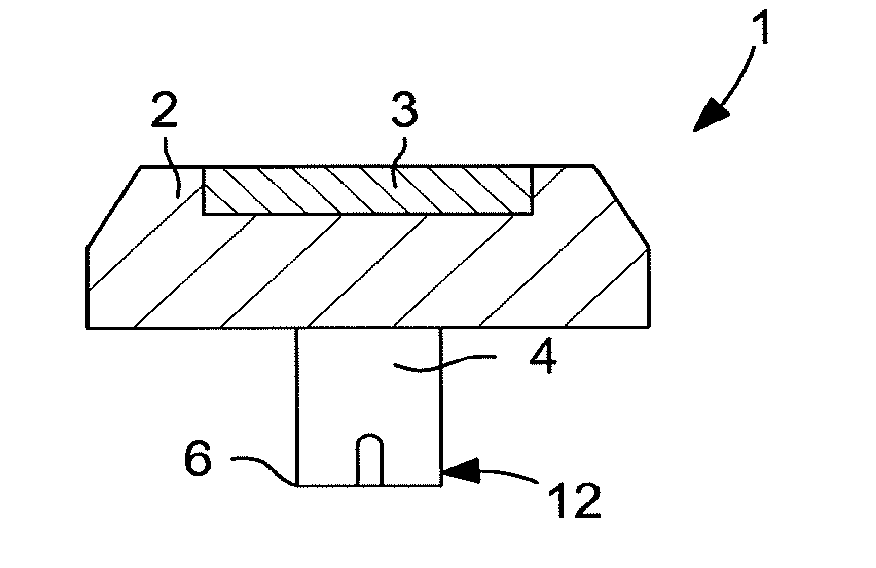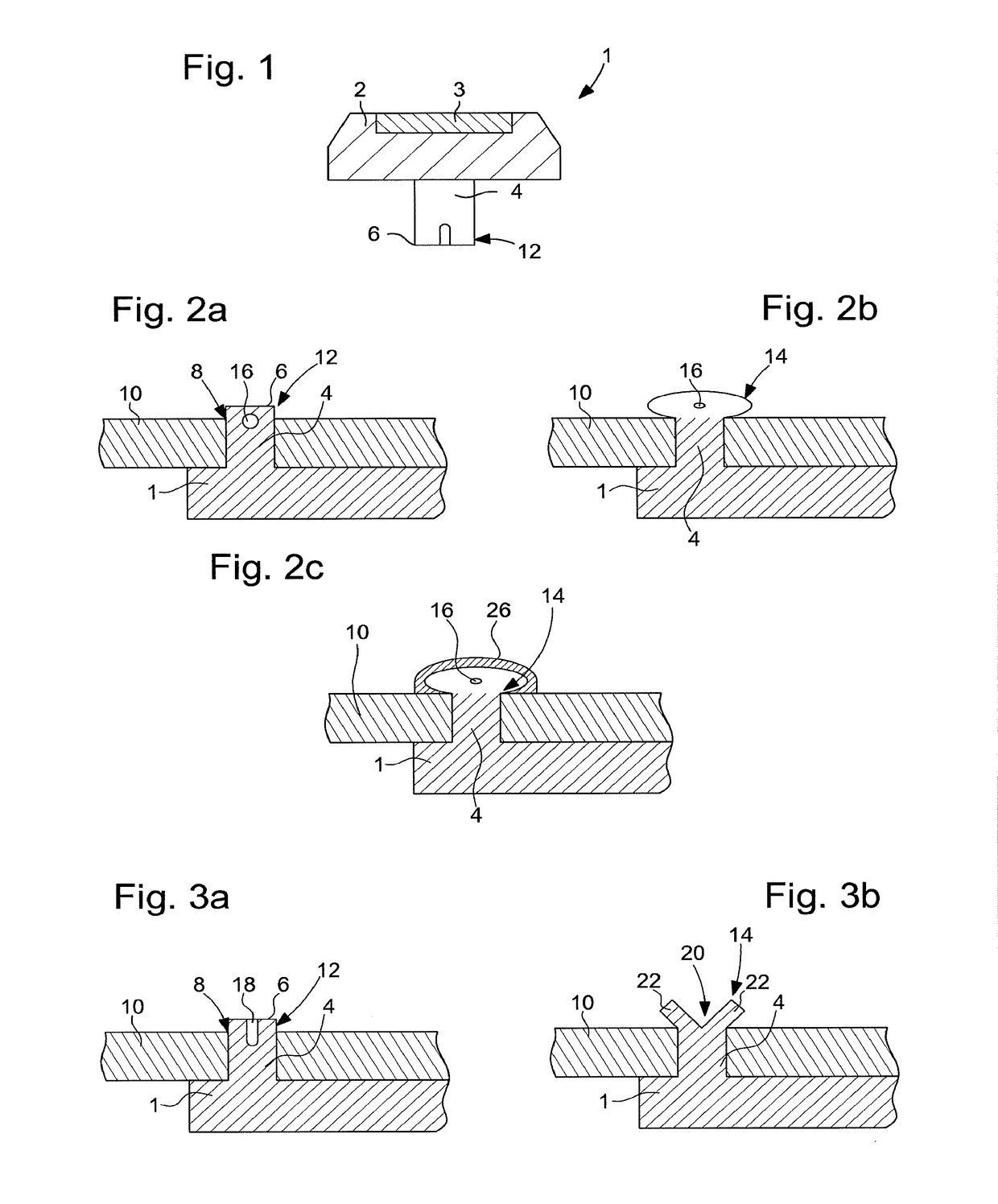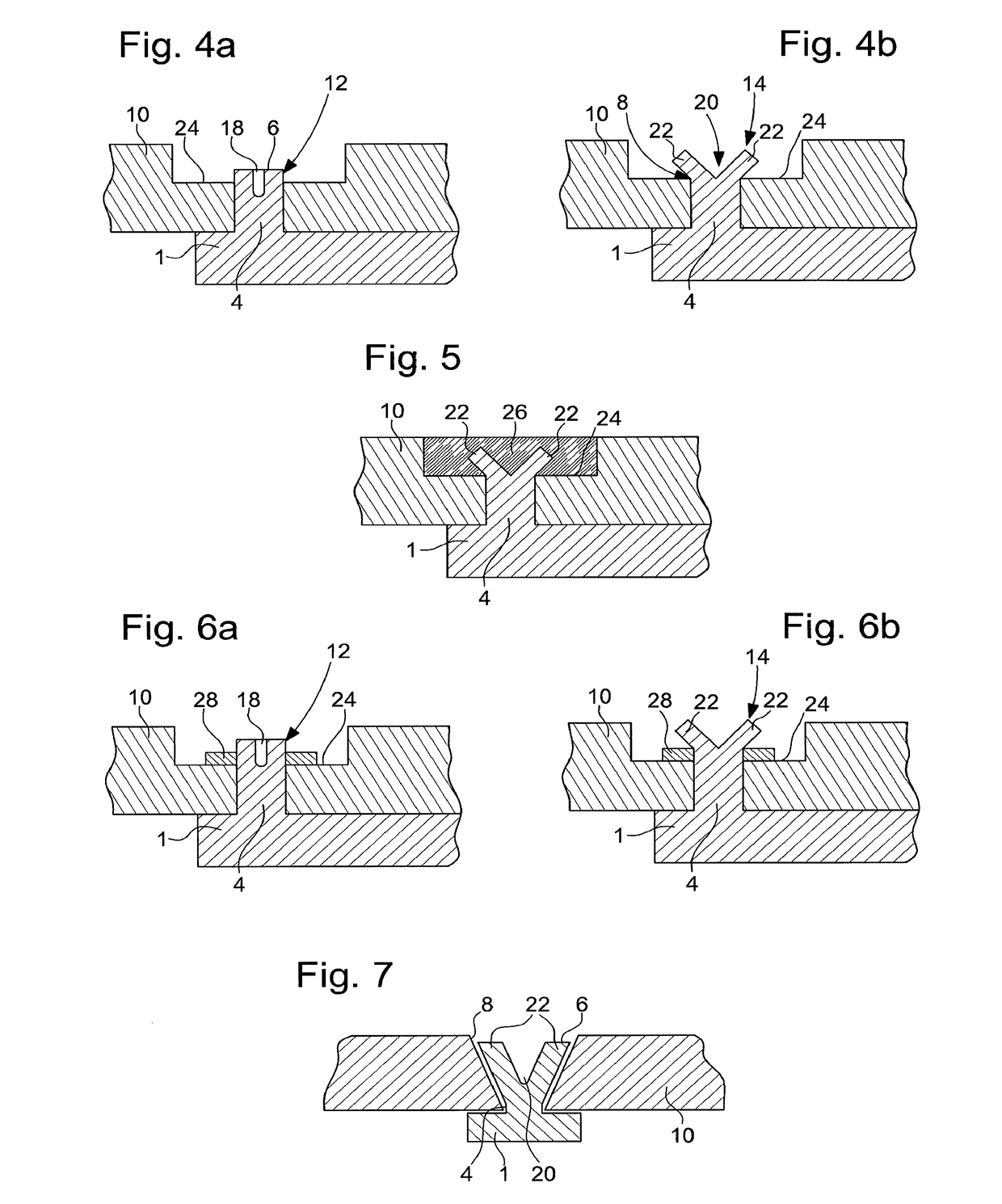Dial applique for a timepiece
a timepiece and dial technology, applied in the field of mechanical horology, can solve the problems of not being able to weld gold appliques onto ceramic dials, limiting the materials that can be used to make appliques and dials, and unable to use fragile dials. , to achieve the effect of simple assembly, excellent hold, and robust and stable method
- Summary
- Abstract
- Description
- Claims
- Application Information
AI Technical Summary
Benefits of technology
Problems solved by technology
Method used
Image
Examples
first embodiment
[0039]In the first embodiment represented in FIGS. 2a, 2b, 3a and 3b, dial 10 is planar so that the height of hole 8 is equal to the height of dial 10. The locking area 14 thus projects from the overall surface of dial 10.
second embodiment
[0040]In a second embodiment represented in FIGS. 4a, 4b, 5 and 6a, 6b, dial 10 comprises a recess 24 inside which through hole 8 is formed, and the height of hole 8 is equal to the height of the dial under recess 24. Thus, locking area 14 is embedded in dial 10 and does not project from the overall surface of dial 10.
[0041]In a third embodiment represented in FIG. 5, derived from the second embodiment, recess 24 is filled with a permanent means 26 of fastening to the dial, such as adhesive, to cover the part of foot portion 4 projecting from hole 8. This variant reinforces the assembly. If the assembly is checked by visual means, the adhesive will evidently by deposited after said inspection, once the assembly has been validated. The addition of a permanent fastening means also allows the position of locking area 14 to be fixed by filling the space formed between lugs 22.
[0042]In a fourth embodiment represented in FIGS. 6a and 6b, derived from the second embodiment, a spacer 28 is ...
fifth embodiment
[0043] represented in FIG. 7, foot portion 4 has a height lower than or equal to the height of hole 8. Hole 8 has an area of conical cross-section whose dimensions are greater than the dimensions of the foot portion 4 prior to the deformation of plastically deformable area 12, to allow insertion of the foot portion into hole 8 prior to deformation. Further, the dimensions of the area of conical cross-section are chosen such that locking area 14 abuts against said area of conical cross-section. More specifically, as represented in FIG. 7, lugs 22 form an inverted cone which is inscribed within the area of conical cross-section of hole 8 such that said lugs 22 abut against the walls of hole 8 preventing any removal of foot portion 4 from hole 10. It is evident that this variant can be combined with the embodiment with the hole inside a recess, and with the use of permanent means of fastening to the dial to cover locking area 14 and fill at least hole 8.
[0044]The present invention also...
PUM
 Login to View More
Login to View More Abstract
Description
Claims
Application Information
 Login to View More
Login to View More - R&D
- Intellectual Property
- Life Sciences
- Materials
- Tech Scout
- Unparalleled Data Quality
- Higher Quality Content
- 60% Fewer Hallucinations
Browse by: Latest US Patents, China's latest patents, Technical Efficacy Thesaurus, Application Domain, Technology Topic, Popular Technical Reports.
© 2025 PatSnap. All rights reserved.Legal|Privacy policy|Modern Slavery Act Transparency Statement|Sitemap|About US| Contact US: help@patsnap.com



